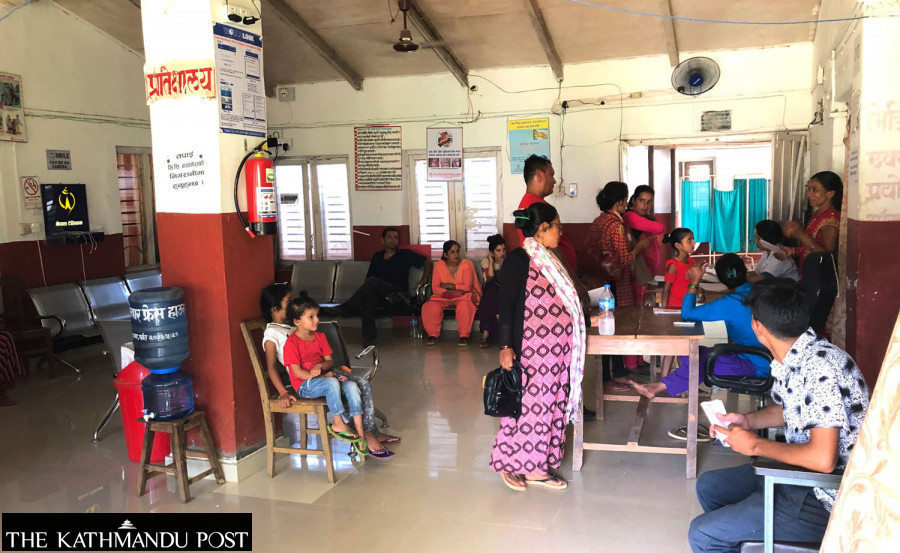Health
Cholera outbreak feared in Kathmandu
Confirmation of Vibrio cholera 01 Ogawa serotype in two individuals in Kathmandu raises risk of an outbreak.
Arjun Poudel
On Sunday, the Ministry of Health and Population confirmed cholera infection in two people in Kathmandu. The disease was detected in two sisters aged 18 and 23 years from Kathmandu Metropolitan City-28, Bagbazar.
“Vibrio cholera 01 Ogawa serotype has been confirmed in stool samples of the patients,” said Dr Manisha Rawal, director at Sukraraj Tropical and Infectious Disease Hospital, where the patients have been receiving care.
Sporadic cases of suspected cholera have been reported in the Valley of late, according to officials at the infectious disease hospital.
Cholera is a highly infectious disease that causes severe diarrhoea and vomiting, which causes dehydration and can lead to death within a few hours if left untreated. The World Health Organisation says cholera is a global threat to public health and an indicator of inequality and a lack of social development.
The two sisters were admitted to the hospital on Thursday afternoon. The patients were reportedly suffering from frequent bowel movements, as many as 30 in a day, before being taken to the hospital. The Kathmandu Model Hospital, where they were taken first, had carried out antigen tests of their stool samples that returned positive for cholera.
Doctors at the hospital referred the patients to Sukraraj Hospital as their conditions were critical.
According to Rawal, the patients were unconscious when they were brought to the hospital, where they were admitted to the intensive care unit. “It took more than 24 hours for their health to stabilise,” Rawal said. “They are out of danger now.”
Stool samples of the infected patients were sent to the National Public Health Laboratory for further confirmation. The lab confirmed the infection of the deadly disease in both samples.
The Sukraraj Hospital said that three other individuals—a 50-year-old from Sanepa in Lalitpur, a 65-year-old from Kuleshwor in Kathmandu and a 28-year-old from Sindhupalchok who works in Kathmandu—have been admitted at the hospital’s intensive care unit with severe diarrhoea, which is one of the symptoms of cholera. The patients’ stool samples, too, have been sent to the National Public Health Laboratory for testing.
Doctors warn that increase in rainfall and disruption in garbage collection in Kathmandu Valley have increased the risk of contamination in drinking water sources and, therefore, of outbreak of waterborne diseases like cholera.
In October last year, Vibrio cholera outbreak in several local units of Kapilvastu district killed at least four people including three minors—boys aged seven and two, and a five-year-old girl. Another deceased was a 45-year-old man.
Following the outbreak, the Health Ministry had launched a mass vaccination drive against the disease after all its attempts failed to curb the infection.
The UN health agency says that a multifaceted approach is key to controlling cholera and reducing deaths.
Doctors say launching awareness drives against water-borne diseases and ensuring safe drinking water are the only ways to save people from dying of water-borne diseases, including cholera.
A combination of surveillance, water, sanitation and hygiene, social mobilisation, and treatment is required to contain the spread of the infection, according to doctors.




 10.97°C Kathmandu
10.97°C Kathmandu















